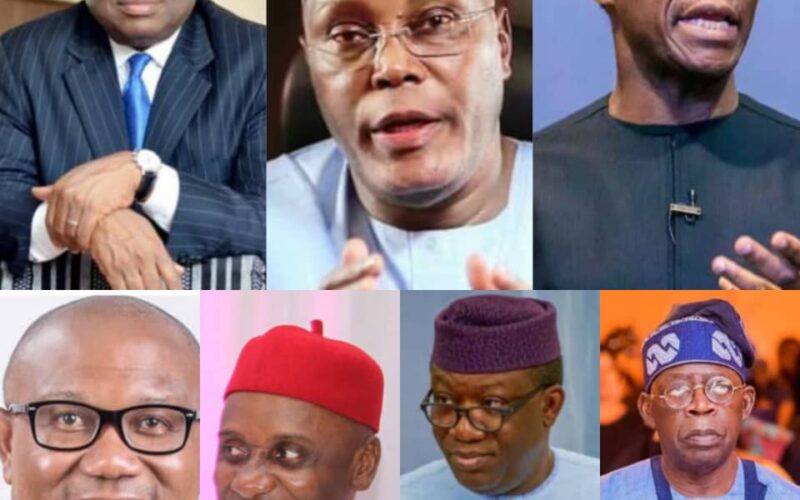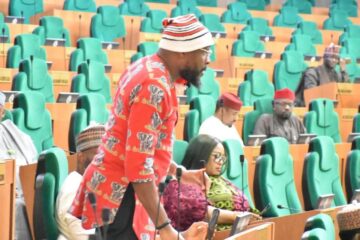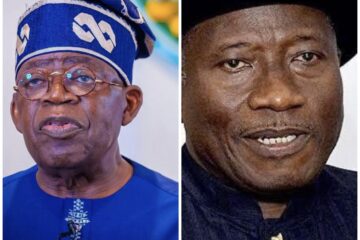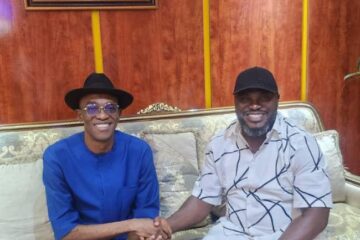With less than two years until the next presidential election, the search for Nigeria’s next president is already dominating public discourse across the landscape as citizens desperately seek a new president, someone that can bring healing to the divided country and restore hope, confidence and prosperity in the multi-ethnic oil producer.
Public opinion moulders, public affairs experts and commentators have canvassed some qualities that the new president must have. There appears to be an agrrement to a large extent on the kind of leader that should succeed incumbent Muhammadu Buhari.
As the country struggles with multiple problems which it finds itself due to poor management of its affairs, it must elect a new president on February 18, 2023, a kind of leader it has never elected before – a problem solver, that understands the challenges and how to solve them.
In finding the country’s next president, Nigerians must find someone who is healthy and determined to fix the current mess. A smart, bold, resolute person that is competent and skillful in management and can inspire and restore hope to the teeming population that have given up on the country. This new president we strongly believe should not come from the political class. He should be an experienced technocrat, someone from the corporate world with a good network of contacts locally and internationally, someone who understands how to create wealth, manage and resolve complex problems and understands how government works. This new president should be way below 70 years old.
Already, the activities of the two dominant political parties, the ruling All Progressives Congress (APC) and the Peoples Democratic Party (PDP) have, as usual, set the tone for the 2023 presidency because of the jostling for where the presidency should go among the country’s geo – political zones.
The PDP has fixed its national convention for October this year, moving it from December as part of a peace deal to calm warring factions in the party.
It is therefore clear that once the party elects a new national executive at the convention and inaugurates them, the activities towards the 2023 general elections will start in earnest within the party.
The APC, on the other hand, held its ward congresses recently and has scheduled its local governments’ congresses for September 4, 2021. This will be followed by the state congresses and ultimately, the national convention of the party.
Long before the parties, the electoral umpire, Independent National Electoral Commission (INEC) in March announced Saturday February 18, 2023 as the date for the presidential election.
Primed by these ongoing political activities, politicians and non-politicians have been dropping names of potential presidential picks.
For instance, former Nigeria Military President, General Ibrahim Badamasi Babangida (retd.) recently in a television interview, as part of activities marking his 80th birthday, talked about the ideal age of the next Nigerian President. According to him, he should be someone in his 60s, widely travelled with a wide network of persons across the country, such that he would be at home anywhere, any time.
The Southern Governors Forum, after their recent meeting in Lagos, canvassed that the southern part of the country should produce the next President in other to sustain Nigeria’s unity since Buhari, who is from the north would have served for eight years when his constitutionally guaranteed tenure ends in 2023. To them therefore, it is morally and politically right for the next President to come from the southern part of the country.
A school of thought says the next President of the country should not be a run-of- the-mill-politician. To this group of political thinkers, the economy of the country has been run aground by mostly politicians since the advent of the Fourth Republic in 1999 and many Nigerians are fatigued with regular politicians and so there is need for the country to look for top notch technocrats and private sector business leaders who can reposition the country’s economy.
Another school of thought strongly supports this argument but contends that the country must elect a hybrid personality from the South, a technocrat, an astute businessman or woman, who knows how to create jobs and wealth; someone who is not your typical politician and is acceptable by all the key interests in the country, so Nigerians unite as people and move the country forward.
Others are of the opinion that experience in politics and age are key requirements in the search for the next leader. To them, you cannot govern a country with a complex structure like Nigeria without political experience. They cite Atiku Abubakar, who at 74 is too old but has the political experience to govern well. The current President of the United States of America, Joe Biden who is above 70 years, is also used to buttress this position.
As the permutation mounts, many names are being thrown up as likely aspirants. Some of these names are already in the public domain but there are some surprises.
Former Governor of Lagos State and APC leader, Asiwaju Bola Ahmed Tinubu; former Vice President and presidential candidate of the PDP in the last presidential election, Alhaji Atiku Abubakar; the Governor of Ekiti State, who is also the Chairman of the Nigerian Governors’ Forum, Dr Kayode Fayemi; Central Bank Governor (CBN) Godwin Emefiele; African Development Bank President, Dr. Adesina Akinwunmi; former Pfizer Chairman, Sam Ohuabunwa; former Deputy CBN Governor, Prof. Kingsley Moghalu; Senate Majority Whip, Senator Orji Uzor Kalu; Transport Minister, Rotimi Amaechi, former Governor of Anambra State, Peter Obi and Kogi State Governor, Yahaya Bello.
Others are a former INEC Chairman, Prof. Attahiru Jega; former President of the Senate, Bukola Saraki; former Governor of Imo State, Rochas Okorocha; former Governor of Ogun State, Ibikunle Amosun; Attorney General of the Federation and Minister of Justice, Abubakar Malami; Rivers State Governor, Nyesom Wike; Sokoto State Governor, Aminu Tambuwal; Delta State Governor, Ifeanyi Okowa; Minister of Trade and Industry, Niyi Adebayo; Ebonyi State Governor, David Umahi; former Lagos State Governor and now Minister of Works and Housing, Babatunde Raji Fashola (SAN); Governor Dave Umahi of Ebonyi State; Governor Bala Mohammed of Bauchi State and Secretary to Government of the Federation, Boss Mustapha.
Here are some of the potential aspirants and their credentials.
BOLA TINUBU
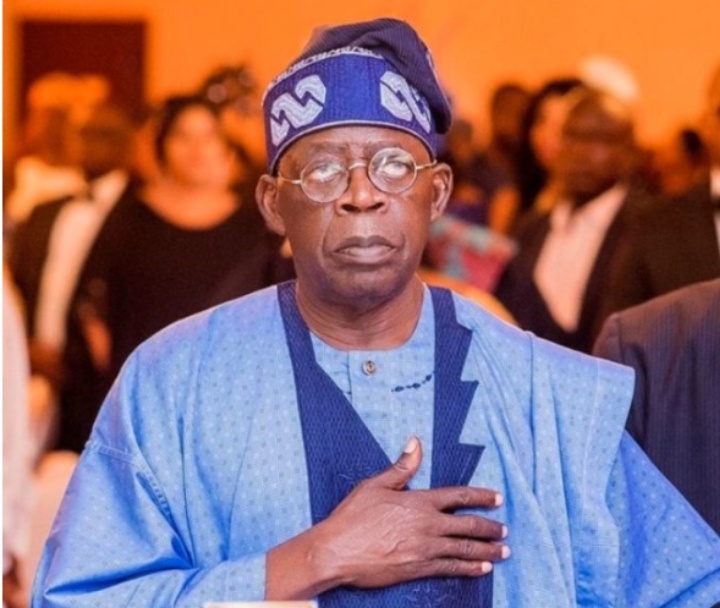
Former Lagos State governor and National Leader of the All Progressive Congress, Senator Ahmed Bola Tinubu
There is only one major obstacle between Tinubu and his presidential ambition. It is President Muhammadu Buhari and his close associates and advisers.
Born on March 29, 1952 in Osun State, South West Nigeria, Tinubu represented Lagos West constituency in the short-lived Nigerian Third Republic.
Perhaps, the golden era of Tinubu began with his assumption of office as governor of Lagos State in May 1999. His achievements in office between 1999 and 2007 endeared him to Nigerians across the nook and crannies of the country as Lagos state under him became a model for other states, especially in the geometrical increase of its Internally Generated Revenue, I
GR, from a paltry N600 million to N8 billion and later to N20 Billion monthly.
In 2014, Tinubu financially and morally supported General Muhammadu Buhari, who had previously unsuccessfully contested in the 2003, 2007, and 2011 presidential elections, to emerge as APC presidential candidate.
In 2015, Buhari rode the APC to victory, ending the 16 years rule of the PDP and marking the first time in the history of Nigeria that an incumbent president lost to an opposition candidate. Tinubu has gone on to play an important role in the Buhari administration, supporting government policies and holding onto the internal party reins, in lieu of his long-held rumoured presidential aspiration. In 2019, he supported Buhari’s re-election campaign, defeating the PDP candidate Atiku Abubakar.
Although he has not officially declared his interest to contest the 2023 presidential election, his body language has continued to suggest so as a group supporting his ambition was launched about a year ago in Ibadan, the Oyo State capital. The group which styles itself ‘ South West Agenda for Asiwaju’, SWAGA, is led by former Minister of Works, Dayo Adeyeye and has been in the forefront campaigning for a Tinubu presidency, come 2023.
It was gathered from sources in the APC that there was an unwritten agreement in the party that a southerner will succeed Buhari in 2023. This was corroborated recently by the former Governor of Ogun State and a chieftain of the party, Chief Olusegun Osoba. Some even put it more succinctly that the agreement was that Tinubu would succeed Buhari come 2023.
His recent health challenges may be a minus for his aspiration to govern the country as he has been abroad for medical treatment in the past months, fueling speculations that Nigeria cannot afford another ailing president in office after President Muhammadu Buhari.
PROFESSOR YEMI OSINBAJO
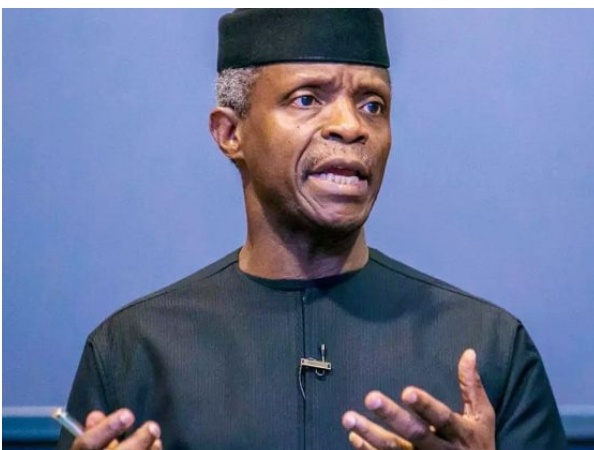
Professor Yemi Osinbajo, who was born in March 1957, is currently serving his second term as the vice president to President Buhari and they have enjoyed a seamless relationship since 2015.
Though the eloquent vice president and Christian preacher has not openly spoken about his presidential aspiration his close friends and associates have started campaigning subtly for his candidature. It however remains uncertain whether he would receive the president’s support having lost out in the power game at the presidency.
Osinbajo obtained Class Honours (Upper Division) Degree in Law from the University of Lagos in 1976. He was admitted to practice as a Barrister and Solicitor of Nigeria’s Supreme Court. In 1980, he attended the London School of Economics, where he obtained a Master of Laws degree.
In 1981, he was employed as a law lecturer at the University of Lagos, Nigeria. From 1983 to 1986, he was Senior lecturer of Law at the University of Lagos. From 1988 to 1992, he was an Adviser (legal advice and litigation) to the Attorney-General and Minister of Justice, Bola Ajibola. Osinbajo began lecturing at the age of 23.
From 1997 to 1999 he was made Professor of Law and Head of Department of Public Law, University of Lagos.
From 1999 to 2007, Osinbajo was a Member of Cabinet, Lagos State Government, also Attorney-General and Commissioner for Justice.
In 2007, Osinbajo was made Senior Partner at Simmons Cooper Partners (Barristers and Solicitors), Nigeria.
From 2007 to 2013 Osinbajo was once again employed as a Professor of Law, Department of Public Law, Faculty of Law, University of Lagos. He was also a Senior lecturer at Lagos State University.
He is from the South West.
ATIKU ABUBAKAR
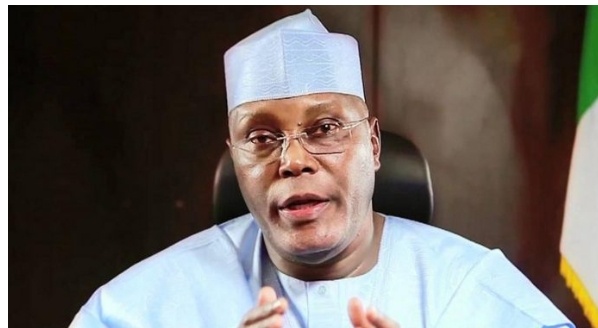
Former Vice President Atiku Abubakar
Mr Abubakar is again the candidate to beat in the PDP. If the party holds its primary today, he would emerge in a landslide because his support within the party establishment is still solid.
Born in 1946, Abubakar’s first foray into politics was in the early 1980s, when he worked behind the scenes on the governorship campaign of Bamanga Tukur, who at that time was managing director of the Nigeria Ports Authority.
In 1989, Abubakar was elected the National Vice-Chairman of the Peoples Front of Nigeria in the build-up to the Third Nigerian Republic. Abubakar won a seat to represent his constituency at the 1989 Constituent Assembly, set up to decide a new constitution for the country. The People’s Front was eventually denied registration by the military government (none of the groups that applied was registered), and the PFN merged with the government-created Social Democratic Party (SDP).
Since 1993 when he contested the SDP presidential primaries and lost, to 1998 when he joined the Peoples Democratic Party (PDP) and later won the governorship of Adamawa State before accepting to serve as the running mate to the PDP presidential candidate, former military Head of State, General Olusegun Obasanjo, who went on to win the 1999 presidential election, Abubakar has been a reference point in Nigerian politics. He has run for the presidency on different platforms such as Action Congress in 2006 and aspired as APC’s candidate before going on to clinch the PDP’s ticket in 2019
Atiku lost the presidential election to incumbent President Muhammadu Buhari by over 3 million votes.
The decision of the southern governors that the next President must come from the South may hamper his ambition as many PDP governors from the southern region may not support his 2023 presidential ambition. Atiku Abubakar is from the North East.
GODWIN EMEFIELE
Godwin Emefiele is an economist, a former lecturer and banker, who has been serving as the Governor of the Central Bank of Nigeria since June 4, 2014.
Born on August 4, 1961 in Lagos State, Emefiele is originally from Ika South Local Government Area of Delta State, South-South Nigeria.
Before moving to the Central Bank, Emefiele gained over 18 years of banking experience. He served as Chief Executive Officer and Group Managing Director of Zenith Bank Plc. Emefiele served as Deputy Managing Director of Zenith Bank Plc. from 2001 till 2014. And then as executive director in charge of corporate banking, treasury, financial control and strategic planning of Zenith Bank Plc. Emefiele served as director at Zenith Bank Plc and Zenith Bank (Gambia) Limited after a brief period as director of ACCION Microfinance Bank Limited.
In 2019, Nigeria’s Senate approved a second five-year term for Emefiele therefore making a mark as that reappointment is the first time that anyone will serve for a second term as Governor of CBN since Nigeria’s return to democracy in 1999. For this sterling professional quality, he is being wooed by some influential APC politicians and some corporate sector players to run in 2023.
Emefiele, a core progressive, is one of the most influential people in and outside government today in the country because of how he has used the CBN to effectively help states and the federal government to run their affairs.
He is held in high esteem by President Buhari and his close associates, who will play a key role in determining who the president supports to succeed him within the party.
KAYODE FAYEMI
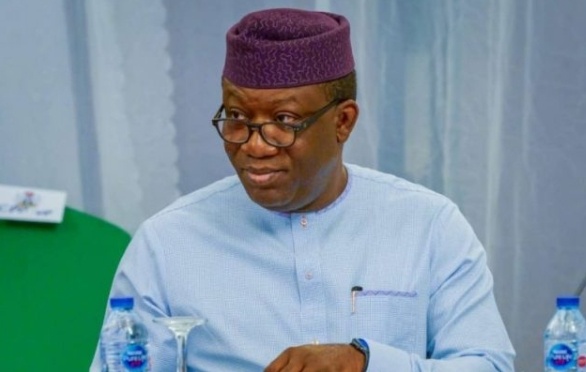
At a recent public lecture at Arewa House’s Centre for Historical Documentation and Research where he was keynote speaker, the Sultan of Sokoto, His Eminence Muhammadu Sa’ad Abubakar described Ekiti State Governor, Dr Kayode Fayemi as an adopted son of the late Sadauna of Sokoto, Sir Ahmadu Bello, setting off a possible support for the ambition of the governor, who is said to be eyeing the presidency after he has serve out his second tenure in 2022.
Kayode Fayemi has lectured in universities across Africa, Europe, the Americas and Asia.
In 2006, Fayemi made his entry into partisan politics, ahead of the 2007 election during which he contested for Governor of Ekiti State on the platform of the defunct Action Congress. After three and a half years fighting a legal battle, he was on October 15, 2010 declared the duly elected Governor of Ekiti State by the appeal court sitting in Kwara State and that marked the end of Olusegun Oni’s tenure.
In April 2014, Fayemi was endorsed as the governorship candidate of the APC in the state’s governorship elections slated for June 21, 2014. He was however defeated at the polls on June 21, 2014 by Ayodele Fayose of the PDP who won a second term in office.
Fayemi re-contested for a second term as Ekiti state governor on the platform of the APC in the July 14, 2018 governorship election after resigning as the Minister of Solid Minerals Development. He won and has since been governor of the state, for a second term, having defeated Kolapo Olusola Eleka of the PDP.
He is now the Chairman Nigeria Governors’ Forum and hails from the South West.
AKINWUMI ADESINA
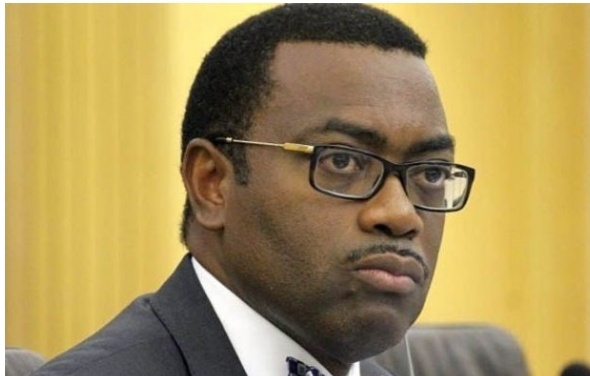
An economist, Akinwumi Adesina is currently serving as the President of the African Development Bank. He previously served as Nigeria’s Minister of Agriculture and Rural Development during which he revolutionised the agricultural sector of the country through an e-system that brought many farmers within the agriculture value chain. Until his appointment as Minister in 2010, he was Vice President of Policy and Partnerships for the Alliance for a Green Revolution in Africa (AGRA). He was elected as the President of the African Development Bank in 2015 and re-elected for a second term in 2020. He is the first Nigerian to hold the post.
Adesina is being tipped by a handful of the Nigerian elite, including former President Olusegun Obansanjo, who believes that the next president should be an economist or a technocrat and not a typical politician. He hails from the South West.
BUKOLA SARAKI
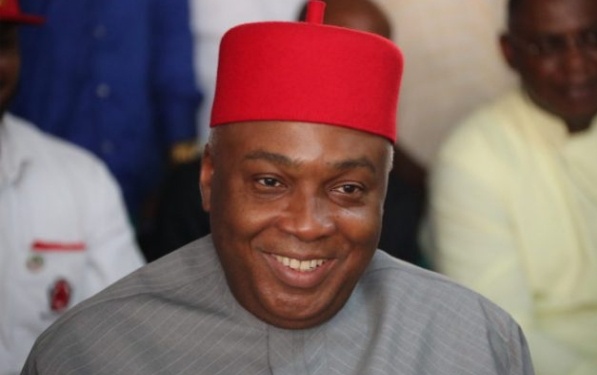
Dr. Olubukola Abubakar Saraki, who was born on December 19, 1962, is a smart politician and businessman. His biggest obstacle to the presidency is his heritage. He hails from Kwara State, North Central and trained as a medical doctor.
Pundits have often wondered what part of the country Saraki, a Muslim, would pick his running mate from in today’s complex political space.
He was the 13th President of the Senate from 2015 to 2019 and Chair of the 8th Nigeria National Assembly. He was previously the Governor of Kwara State from 2003 to 2011; and was elected to the Senate in 2011, on the platform of the Peoples Democratic Party (PDP), representing the Kwara Central Senatorial District, and then re-elected in the 2015 general elections on the platform of the All Progressives Congress (APC).
On July 31, 2018, Saraki declared his presidential campaign for the PDP presidential ticket in the 2019 election, but he lost the primaries to Atiku Abubakar. He was subsequently announced as the director-general of Atiku Abubakar’s presidential campaign for the 2019 presidential election.
KINGSLEY MOGHALU
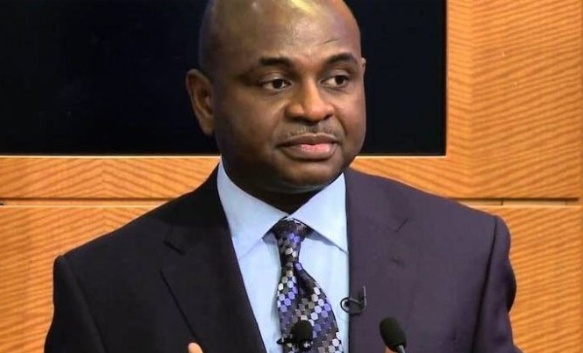
He is an economist, who has declared his presidential ambition for 2023 since June 1, 2021. Moghalu is a political greenhorn and has boldly prosecuted his presidential run with articulate and progressive policies that appeal to educated Nigerians both at home and in diaspora. His biggest hurdle is that he is not in the either of the two main political parties.
A lawyer, he served as Deputy Governor of the Central Bank of Nigeria, from 2009 to 2014. He was the presidential candidate of the Young Progressives Party (YPP) in the country’s general election in February 2019.
SENATOR DR. ORJI UZOR KALU
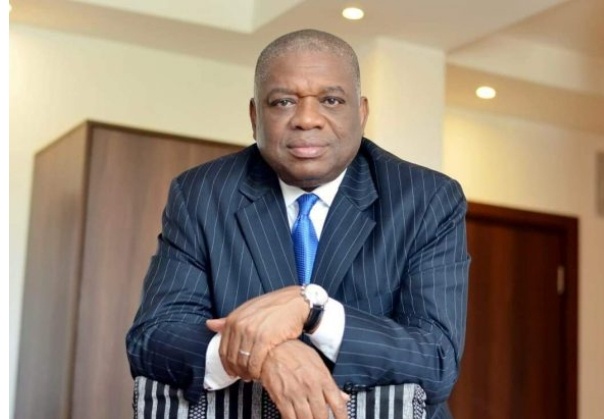
Orji Uzor Kalu was born on April 21, 1960. He is the chairman of the Daily Sun and New Telegraph newspapers. He served as the governor of Abia State from May 29, 1999 to May 29, 2007.
He is currently a member of the ruling All Progressive Congress (APC) after he officially announced his resignation as the PPA BOT chair.
Orji Uzor Kalu who represents Abia North in the Senate, running under the banner of APC, is already lobbying politicians across the nook and crannies of the country to support his ambition to govern the country. The national sympathy being enjoyed by the South-East to have the presidential slot come 2023 may work in his favour.
MR. PETER OBI
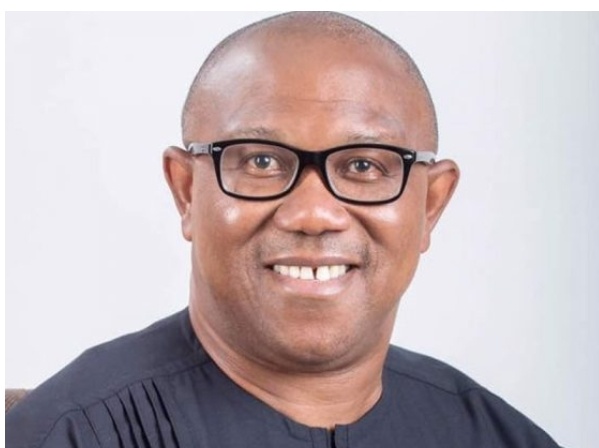
Born on July 19, 1961, Peter Obi was the vice presidential candidate in the 2019 general election under the People’s Democratic Party. He was the former governor of Anambra State serving from March 17, 2006 to November 2, 2006, when he was impeached and from February 9, 2007 to May 29, 2007 after his impeachment was overturned. Although a fresh election was held on the 29th of April 2007, he was reappointed governor on the 14th of June 2007 after a court ruling that he should be allowed to complete a four-year term. He won the election for a second term as governor and his tenure has been a reference point in governorship for his educational, business and security policies that repositioned the state as one of Nigeria’s best in the West African School Certificate Examination results and secured the hitherto hoodlum- infested state. A seasoned banker and technocrat with requisite political experience, Obi is highly favoured to clinch the ticket if the presidency is zoned to the South by the PDP.
YAHAYA BELLO
Bello was born on June 18, 1975 in Okene, Kogi State. He was declared winner of the 2015 Kogi gubernatorial election after he was chosen on the platform of the APC as the replacement for the late Abubakar Audu who originally won the election but died before the result was declared. On November 16, 2019, Bello was elected to a second term after he defeated PDP nominee, Musa Wada, by over 200,000 votes.
He has shown huge interest in the presidential election coming up in 2023 and his youthful age may be an advantage as many Nigerians are canvassing for a generational change in Nigerian leadership.
ATTAHIRU JEGA
Attahiru Muhammadu Jega was born on January 11, 1957. An academic and former Vice-Chancellor of Bayero University, Kano, he was a former Chairman of INEC. He replaced Prof Maurice Iwu, who vacated the post in April 2010.
Jega is the first INEC chairman to oversee two Nigerian General Elections (2011 and 2015). Jega retired on June 30, 2015, handing over his position to Amina Zakari, according to a directive by President Muhammadu Buhari. A respected and reputed academic, Jega is widely liked across the country.
He has announced his interest in contesting the 2023 presidential election on the platform of the People’s Redemption Party (PRP). The party has small followership in the north not to talk of the country. This may count against him.
AMINU TAMBUWAL
Aminu Waziri Tambuwal, born on January 10, 1966 serves as the Governor of Sokoto State, having contested and won in the 2015 general elections and re-elected in the 2019 general election.
Tambuwal is a member of the PDP and served as the 10th Speaker of the House of Representatives of Nigeria, also representing the Tambuwal/Kebbe Federal Constituency of Sokoto State.
In 2019 he was defeated at the presidential primary of the PDP by Atiku. Tambuwal will take another shot at the presidency next year, according to his close associates. He worked closely with Governor Nyesom Wike in the presidential primary of the party but their alliance has since collapsed. Both men have recently parted ways and it is unclear why that happened.
BOSS MUSTAPHA
Boss Gidahyelda Mustapha is a lawyer and politician, who is the Secretary to the Government of the Federation (SGF) and Chairman of the Presidential Task Force on COVID-19. He is one of the surprises in the presidential mix for 2023.
He was previously managing director of Nigerian Inland Waterways Authority until his appointment in 2017 to replace Babachir David Lawal as SGF by President Muhammad Buhari on 30 October 2017.
IFEANYI OKOWA
Ifeanyi Arthur Okowa is the governor of Delta State. He was born on July 8, 1959 and inaugurated as a governor on May 29, 2015 after winning the state elections conducted in April 2015.
Okowa is also a surprise on the list of likely aspirants if the opportunity presents itself. Though he has not openly indicated his interest in the presidency sources close to him hinted that it depends on what his party decides. If the presidential ticket is zoned to the north then he would play for a vice presidential ticket. However if the PDP zones its ticket to the south, which is very unlikely, then he would throw his heart in the ring. He is also looking at running for senate if the two presidential options are unrealizable.
Before his governorship, he was elected senator for Delta North Senatorial District in Delta State in the April 2011 general election.
NYESOM WIKE
Ezenwo Nyesom, born on December 13, 1963, is fondly called Ivan the Terrible, by pundits because of his unpredictable behavior, utterances and aggressive style of politics.
He is positioning for a Vice Presidential ticket but would run for president if his political party, the PDP zones the presidency to the South.
A lawyer who is the sixth and current governor of Rivers State, Wike is an Ikwerre from Rumuepirikom in Obio-Akpor, Rivers State in the South-South zone. He is a member of the People’s Democratic Party and was educated at Rivers State University of Science and Technology.
Wike served as Minister but resigned before finishing his term to campaign for the governorship position in Rivers State. In 2014, he won the Rivers State PDP primary and chose former Secretary to the State Government, Ipalibo Banigo, as his running mate for deputy governor.
Wike defeated Dakuku Peterside of the APC and Tonye Princewill of the Labour Party in the April 11, 2015 governorship election to emerge as governor. He is currently serving his second term as governor of Rivers State.
NIYI ADEBAYO
Born on February 4, 1958, Otunba Niyi Adebayo is a traditional aristocrat.
He served as the first Governor of Ekiti State from May 29, 1999 to May 29, 2003 on the platform of the Alliance for Democracy (AD).
A lawyer by training, Adebayo has extensive experience in a wide range of disputes & legal and advisory work. His more notable achievements have been in the areas of project finance, oil and gas, contract procurement and business facilitation. He had served as National Vice Chairman of his ruling political party, the All Progressives Congress, APC.
Adebayo is currently the Minister of Trade, Industry and Investment. He hails from the South West.
SAM OHUABUNWA
Mazi Samuel Iheanyichukwu Ohuabunwa OFR was born August 16, 1950. He is a pharmacist, politician and business executive. He is the founder and former CEO of Neimeth Pharmaceutical. He is the president of the Pharmaceutical Society of Nigeria.
He has begun his preparation to contest the 2023 presidential election taking his awareness to the nook and crannies of the country. He is however yet to pick the party’s platform on which he hopes to realise his ambition.
BABATUNDE FASOLA (SAN)
Babatunde Raji Fashola, SAN, was born on June 28, 1963. A lawyer and current Federal Minister of Works and Housing, Fashola had earlier served two terms as governor of Lagos State from May 29, 2007 to May 29, 2015.
Fashola is watching the presidential race keenly and would only formally declare if the coast is clear.
He served as a candidate of the Action Congress party and later Action Congress of Nigeria, to succeed his mentor, Bola Ahmed Tinubu. On November 11, 2015, he was appointed by President Muhammadu Buhari to be the Minister of Power, Works and Housing; he was reappointed Minister of Works and Housing in 2019.
ROTIMI AMAECHI
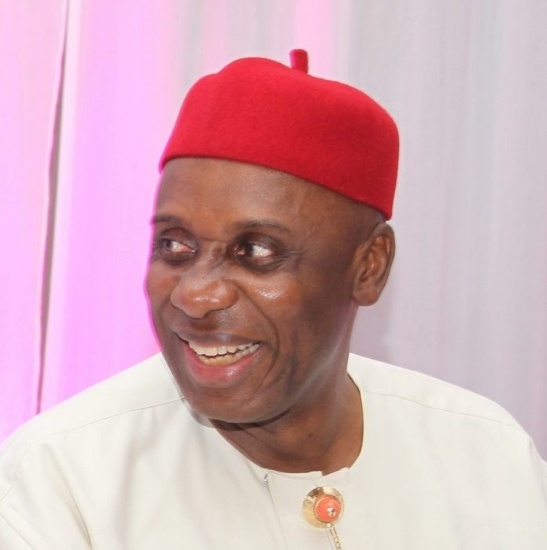
Chibuike Rotimi Amaechi was born on May 27, 1965. He is currently serving as the Minister of Transportation in the cabinet of President Muhammadu Buhari. He had previously served in Rivers State as Governor from 2007 to 2015 and Speaker of the Rivers State House of Assembly from 1999 to 2007.
He is said to be highly favoured to succeed President Muhammadu Buhari due to the great execution of revolution in the railway transport sector under his watch as minister and the double advantage his South- South and South-East connections give him. He however has a big battle ahead of him with Buhari’s close associates who are opposed to his presidential bid.
ROCHAS OKOROCHA
Owelle Rochas Anayo Okorocha was born on September 22, 1962. He is a great philanthropist and politician of Igbo extraction from Imo State. He is the Senator representing Imo West Senatorial district at the 9th Nigerian Senate. He is also the former Governor of Imo State where he served two terms.
He is the founder of Rochas Foundation, a charity organization comprising a number of special schools that are spread all over Nigeria, giving scholarships to less privileged children in Nigeria. On his first attempt, he ran on the platform of the All Progressives Grand Alliance (APGA) and then on the platform of the APC for his second term. He contested the presidential primary of the APC in 2014 and lost to Muhammadu Buhari. His running battles with Governor Hope Uzodinma, coupled with the known connection of Uzodinma to northern power brokers in APC, may count against Okorocha.
IBIKUNLE AMOSUN
Ibikunle Amosun, born on January 25, 1958 is the former governor of Ogun State and a two-term senator. He is the closest person from the South West to President Buhari. Pundits say if the President and the ruling party decides to give the ticket to the South West then Amosun would clearly be the favourite of the president.
He first served as an elected senator for Ogun Central District, from April 2003 to April 2007, and was re-elected in 2019. After an unsuccessful bid for governor of Ogun State in April 2007, he was elected governor of the state on the platform of the Action Congress of Nigeria (ACN0 in 2011. He successfully ran for a second term as governor on the platform of the APC and was sworn into office on May 29, 2015. In 2019, he won Ogun State Central Senatorial District election.
DAVE UMAHI
Umahi is current governor of Ebonyi state, South East, who recently defected to the ruling APC and is very close to President Buhari, having been elected on the platform of the PDP for two terms. He is currently Chairman of the National Livestock Programme working to map 25 states for grazing reserves in the country. This has fuelled the belief that if the party zones the presidency to the South-East, Umahi stands a big chance to clinch the ticket.
BALA MOHAMMED
Bala Abdulkadir Mohammed was born on 5 October 1958 in Alkaleri, Bauchi State. He attended University of Maiduguri from 1979 to 1982, where he received a bachelor’s degree in English. In 1983, he joined The Democrat as a reporter, then joined the civil service as an administrative officer from 1984 to 2000.
He worked in several Federal Ministries. He then served as a senior special assistant to Governor Isa Yuguda from 2000 to 2005. He was Director of Administration at the Nigerian Railway Corporation from 2005 to 2007.
In April 2007, Mohammed was elected to the Senate representing Bauchi South Senatorial District on the platform of the All Nigeria People’s Party (ANPP).
Bala Mohammed was appointed minister of the Federal Capital Territory in March 2010. He later dumped the ANPP for PDP and ran and won the governorship of Bauchi State on PDP’s platform in 2019. He is counting on the party zoning the presidency to the north to materialse his ambition. Being from the Northeast with Atiku Abubakar would mean having to fight a turf game with the former Vice President.
TheWill.

